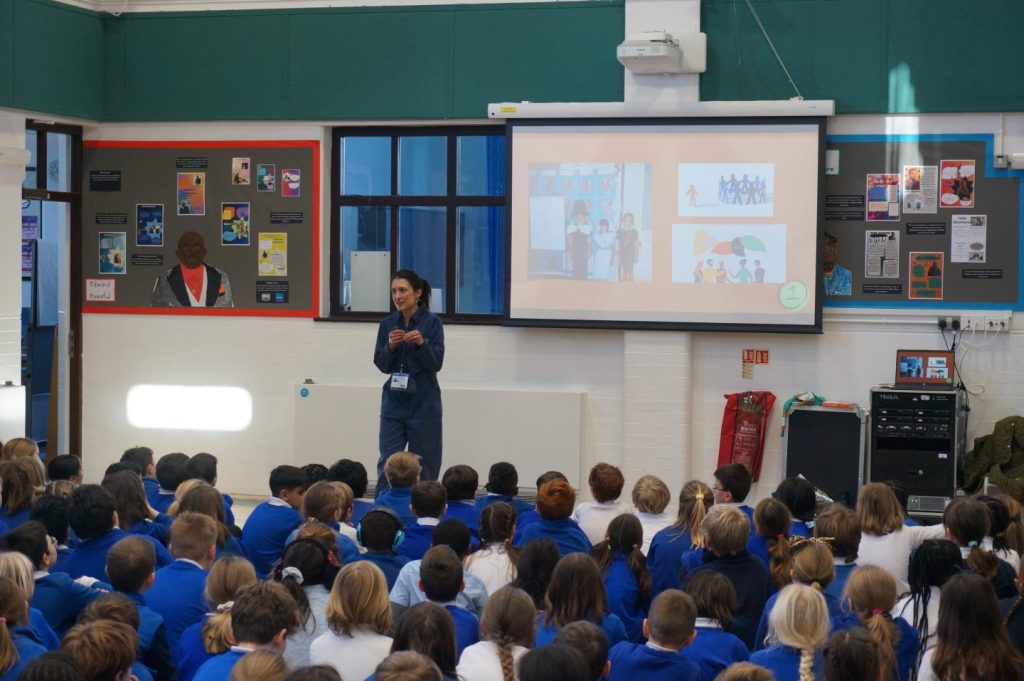 Our Upper Key Stage 2 students were treated to a captivating morning today as we welcomed acclaimed author Janeen Hayat...
Our Upper Key Stage 2 students were treated to a captivating morning today as we welcomed acclaimed author Janeen Hayat...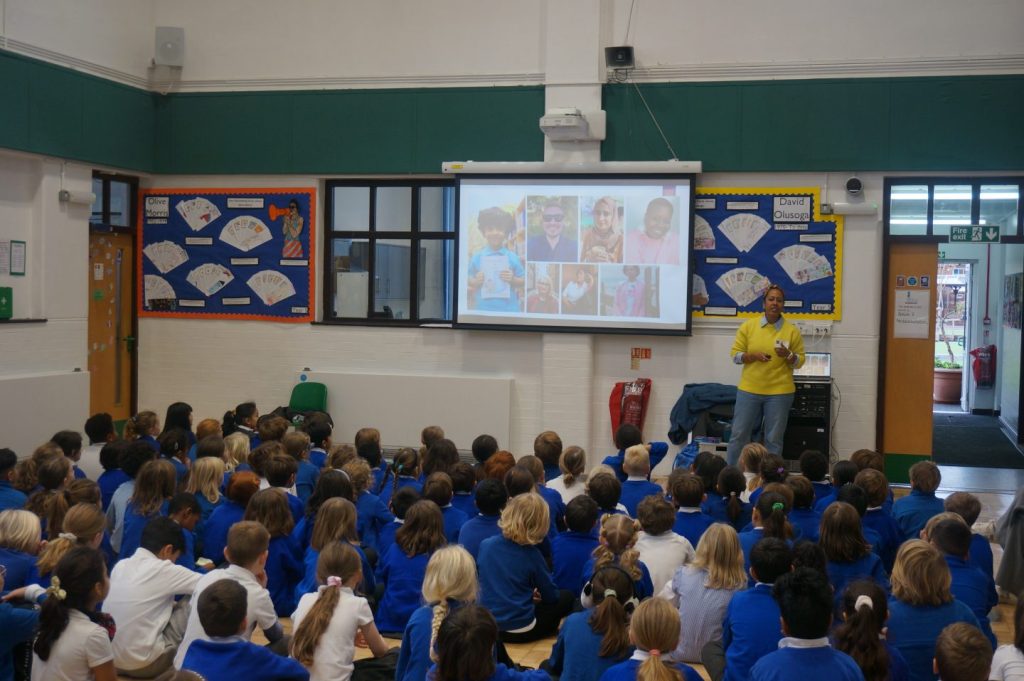 This week, we had the pleasure of hosting a visit by Claire Linney, author of the best-selling children’s book Time...
This week, we had the pleasure of hosting a visit by Claire Linney, author of the best-selling children’s book Time... Our Reception, Y4 and Y5 children were lucky enough to visit the newly-opened Soho Theatre on Hoe Street this week....
Our Reception, Y4 and Y5 children were lucky enough to visit the newly-opened Soho Theatre on Hoe Street this week.... All of our year 1 classes visited the Discovery Centre in Stratford this week to see the Storyworld exhibitions on...
All of our year 1 classes visited the Discovery Centre in Stratford this week to see the Storyworld exhibitions on...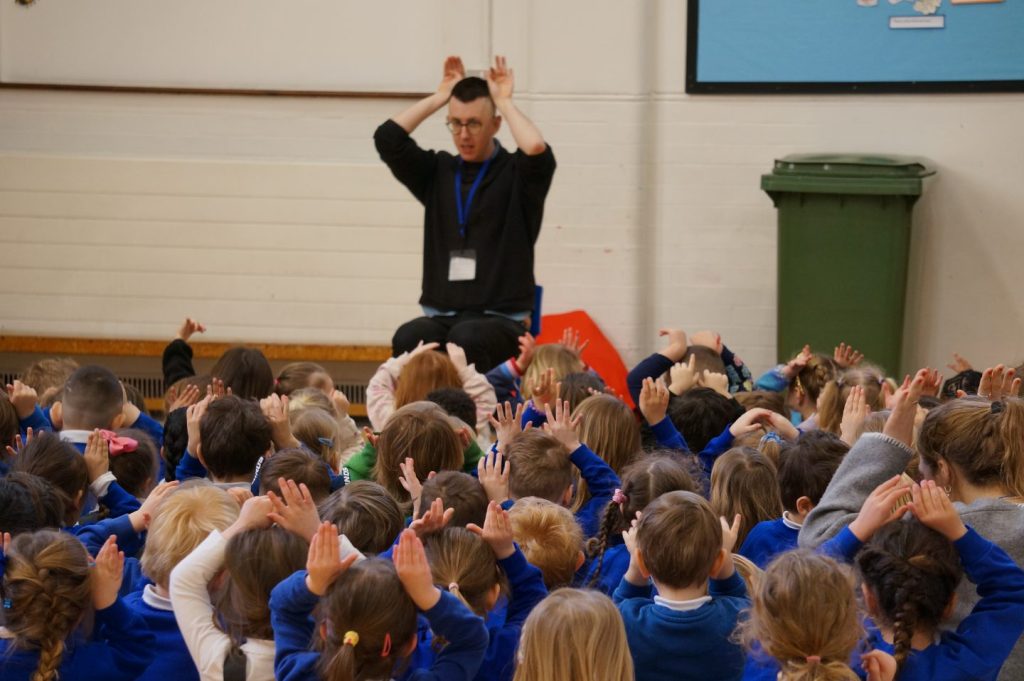 We celebrated World Book Day this week. It was fantastic to see so many children embracing the spirit of the...
We celebrated World Book Day this week. It was fantastic to see so many children embracing the spirit of the...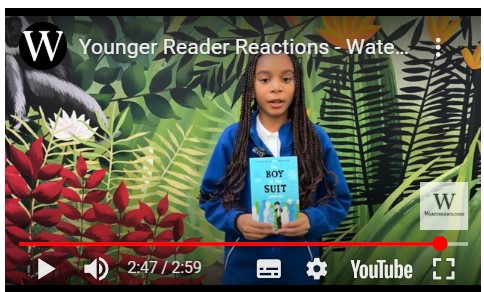 We are incredibly proud of our Reception and Year 6 children who recently took part in filming ahead of the...
We are incredibly proud of our Reception and Year 6 children who recently took part in filming ahead of the...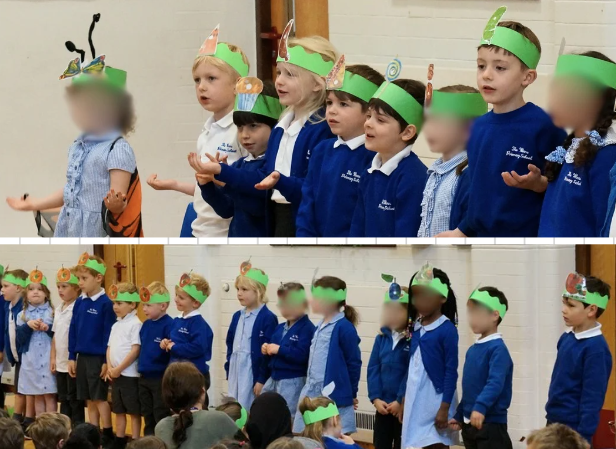 Well done to RCP who also performed their class assembly to their families and the other Reception children this week....
Well done to RCP who also performed their class assembly to their families and the other Reception children this week....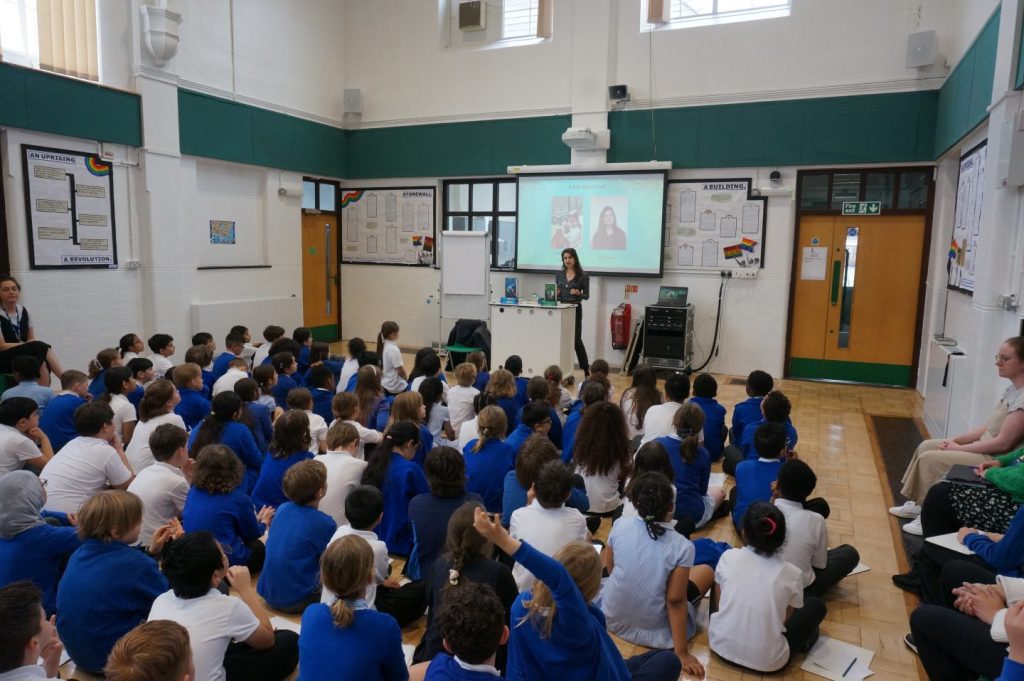 We were incredibly fortunate to be visited by Pari Thomson, winner of the Waterstones Children’s Book Prize 2024 on Tuesday...
We were incredibly fortunate to be visited by Pari Thomson, winner of the Waterstones Children’s Book Prize 2024 on Tuesday...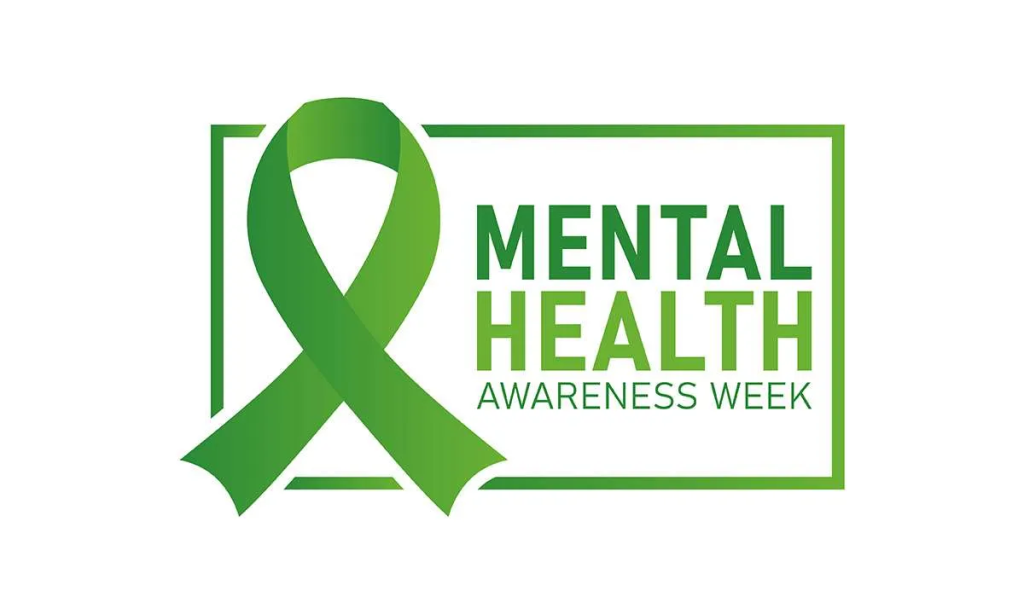 This year’s Mental Health Awareness Week at our school was a tremendous success! The week has featured insightful assemblies and...
This year’s Mental Health Awareness Week at our school was a tremendous success! The week has featured insightful assemblies and...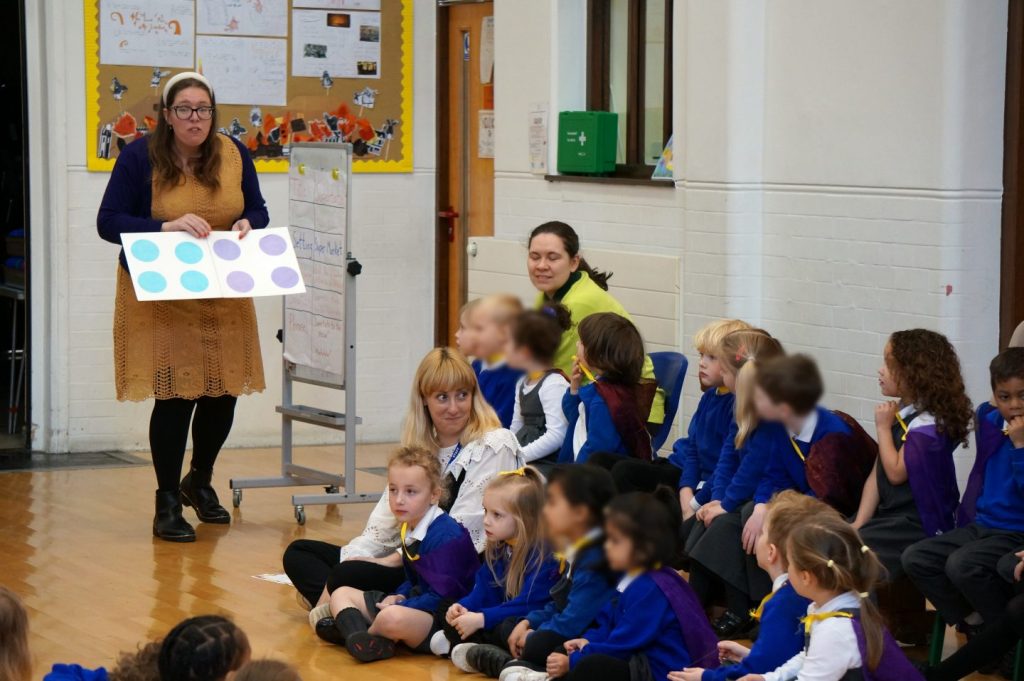 RJC were our first Reception class to present their class assembly to parents and families on Thursday morning. The audience...
RJC were our first Reception class to present their class assembly to parents and families on Thursday morning. The audience...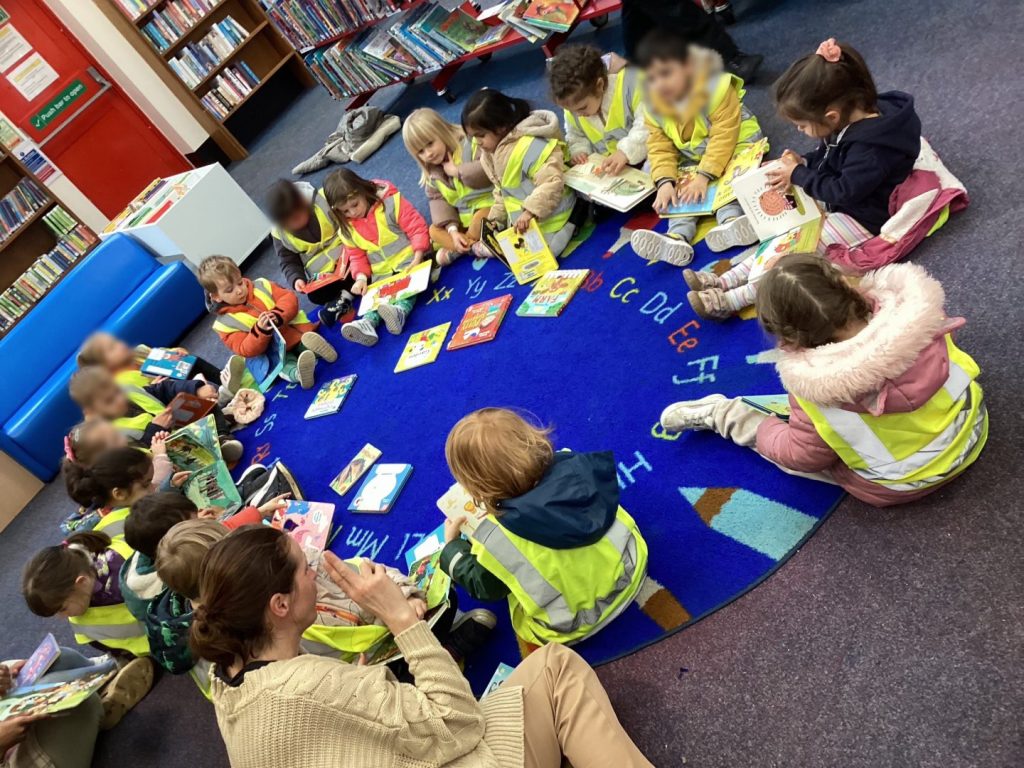 Last Thursday, our Nursery children visited the local library during our World Book Day celebrations. They explored colourful shelves, listened...
Last Thursday, our Nursery children visited the local library during our World Book Day celebrations. They explored colourful shelves, listened...
Reading and Phonics
Reading and Phonics
On this page, you will find information about the teaching of reading at The Winns.
Our Reading Curriculum
The overarching aim for English in the national curriculum is to promote high standards of language and literacy by equipping pupils with a strong command of the spoken and written word, and to develop their love of literature through widespread reading for enjoyment. At The Winns, we bring these aims to life by putting literacy skills at the heart of our curriculum. We want our children to become fluent speakers, avid readers and confident writers. Our children are empowered by a high-quality English curriculum that teaches our children to speak and write fluently so that they can communicate their ideas and emotions to others and through their reading and listening, others can communicate with them.
How do we teach reading?
Text-Based Reading
We believe that children need to be exposed to a rich reading curriculum during their time at The Winns. Children need to read high quality, carefully selected texts that are rich in language and support children to become confident, fluent readers. We also believe that our children should be able to recognise themselves in the texts they read and read books that broaden their understanding of the world around them, books that challenge them to think more deeply, to imagine and dream and to develop a real love for reading.
As soon as children have secured their phonic skills and are confidently able to decode, they begin to progress through our Text-Based Reading curriculum. Most children begin to access our text-based curriculum at the start of Year 2 .
What happens in a text-based reading lesson?
Children have a daily timetabled reading lesson which lasts approximately 45 minutes. As a class they read and explore a book together. Sometimes they read sections alone, sometimes they may read a section with a partner and sometimes they read together as a class. Each child has their own copy of the text or they share a copy with a partner.
During the week, they spend time learning the meaning of new words, building up their reading fluency, talking about themes and developing their understanding of what they are reading. In each lesson, there are lots of opportunities to read , to talk and to write . We continue to support children to decode unfamiliar words and to increase the number of words they can read on sight. Rich and lively vocabulary instruction is an essential component of all our reading lessons. We also focus on developing comprehension skills, including making inferences, summarising and evaluating texts.
Reading beyond our text-based reading lesson
Outside our daily reading lessons, we place a strong emphasis on creating opportunities for children to read in topic lessons. Reading in history, geography and science expands our children’s knowledge of the world in which they live and helps them to learn more and
remember more. We also attach great importance to reading aloud to our children. Teachers read aloud daily to children so they are able to enjoy the experience of being read to and are exposed to stories they might not be able yet be able to read independently.
We are very proud of our well-stocked library and invest in a full time librarian who ensures children are reading for pleasure. All children visit the library at least weekly.
Teaching of Phonics
Phonics is taught rigorously across the Foundation Stage and Key Stage One and as appropriate for children in Key Stage Two. The school follows the Read Write Inc. (RWI) phonics programme. See below for full details

